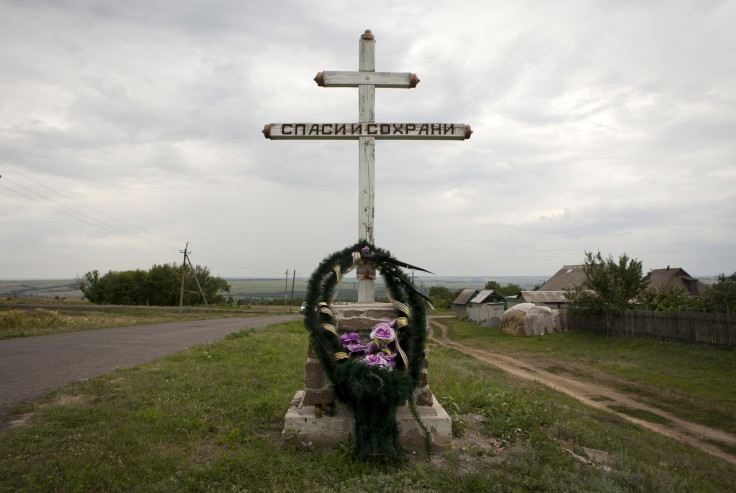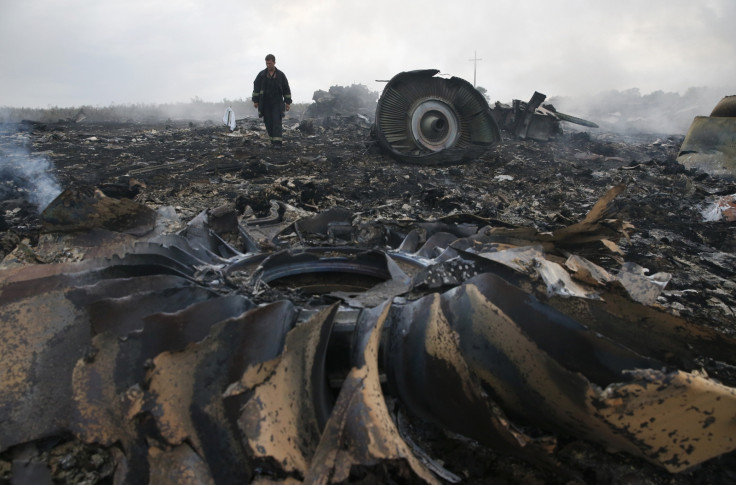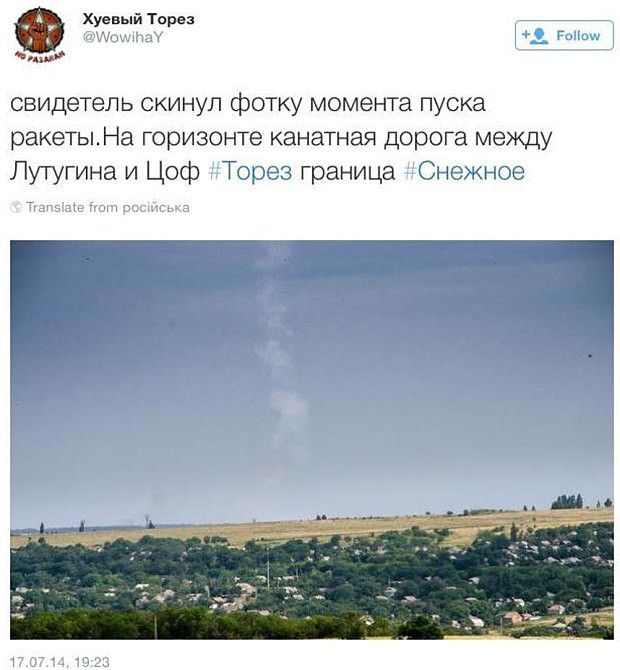Malaysia Airlines Flight MH17: What do we know about who brought down the passenger plane one year on?

A year ago, on 17 July, 298 people were killed when Malaysia Airlines Flight MH17 was shot down and crashed near the village of Grabovo in east Ukraine, where pro-Russian militants were battling Ukrainian government forces.
Perhaps no other tragedy in recent history has been surrounded by such controversy. In the days following the crash, claims and counter-claims emerged about who was responsible for shooting down the airliner.
Ukraine and the US accused Russia-backed militants of downing the aircraft, with Ukrainian President Petro Poroshenko branding the incident a "terrorist attack."
Russian President Vladimir Putin laid the blame on Ukraine, claiming the aircraft would not have been brought down if Kiev had not entered into conflict with separatists.
With the majority of the victims being Dutch, an official investigation was launched by the Dutch Safety Board with evidence from the crash site brought back to the Netherlands for analysis, including the plane's black box in-flight recorders.
A preliminary report released in September 2014 alleged that the plane's fuselage was pierced by a number of "high energy objects," which though not spelled out in the report, is consistent with claims the plane was brought down by the exploding shrapnel warhead of a Buk surface-to-air missile, as alleged by the West.

Sources close to the investigation told CNN this week that a completed version of the report concludes that a Buk rocket fired from territory controlled by Russian-backed militants brought the plane down. In the days following the attack, US intelligence officials claimed a Buk fired from the vicinity of the separatist controlled city of Snizhne brought down MH17.
A separate criminal investigation by Dutch, Australian, Belgian, Malaysian, and Ukrainian detectives is currently underway.
The Dutch Safety Board report is expected to be released in October, while the results of the criminal investigation are not expected until the end of the year.
MH17 has become one of the focal points of the confrontation between the West and Russia following the Ukraine crisis.
The Netherlands has called for an international tribunal to be set up to bring those responsible for downing the aircraft to justice. Russia opposes the plans, with Putin saying that establishing a tribunal would be "premature" in a telephone call with Dutch Prime Minister Mark Rutte on the day before the anniversary of the tragedy.
Russian authorities have conducted their own, rival investigations, claiming to have uncovered evidence indicating Ukrainian involvement.
Arms manufacturers Almaz-Antey claims that an old version of their Buk missile, the M1, fired from an area south of Zaroshchenske, 25 kilometres (15 miles) west of Snizhne and under Ukrainian control at the time of the crash, downed the aircraft.
Russian officials initially claimed that a Ukrainian SU-25 fighter jet shot down the plane with a missile, then in a report leaked to Russia's independent Novaya Gazeta, Russian military investigators claimed that the plane was downed by an M1 Buk, fired from Zaroshchenske.
It is not just official bodies which have carried out investigations, but news organisations and researchers as well have all uncovered evidence which points towards the guilt of pro-Russian militants, and calls into question the Russian account.
Research by the Bellingcat investigations group alleges that the satellite pictures used by the Russian defence ministry to prove rockets were fired from Zaroshchenske were "digitally modified using Adobe Photoshop CS5 software" and the dates altered.
Witness testimony and pictures uploaded on social media show a Buk travelling on the back of a military vehicle to the Snizhne area, while a picture published on Twitter shows a plume of what appears to be rocket smoke rising from a field near the village of Chervonyi Zhovten, three miles to the south of Snizhne moments before MH17 crashed.

With Russia poised to veto plans for an international tribunal at the UN Security Council, and Russian Foreign Secretary Sergei Lavrov alleging that the tribunal is a US plot to pin blame on Russia, it remains uncertain at best whether those who fired the rocket will ever be brought to justice.
© Copyright IBTimes 2025. All rights reserved.





















